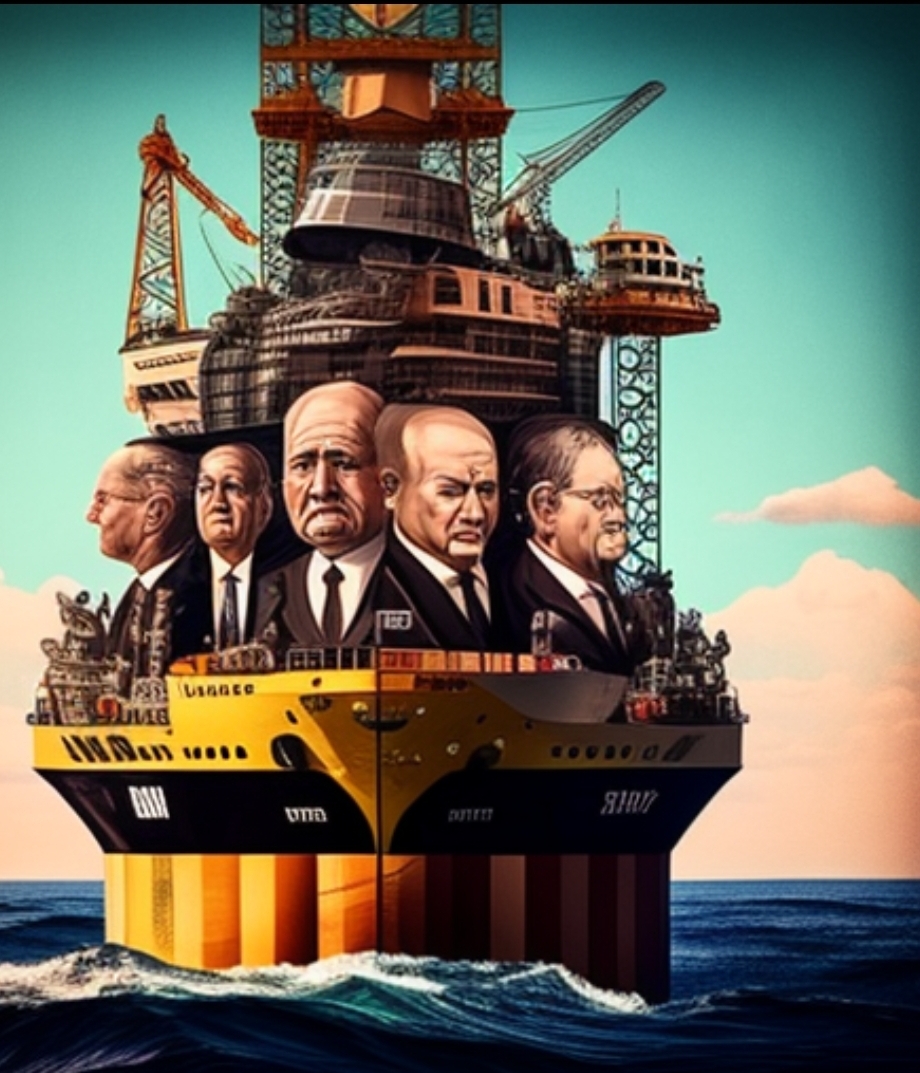Introduction
Oil and gas are crucial global resources, and their production, trade, and consumption have significant impacts on global politics. Governments, energy companies, and consumers interact in complex ways over the control and distribution of these resources, resulting in a power struggle that affects countries’ economic, environmental, and geopolitical interests. The politics of oil and gas have been a subject of intense scrutiny and debate for decades.
In the 21st century, the politics of oil and gas are shaped by several factors, including the growing demand for energy, the rise of emerging markets, the shift towards renewable energy, and the increasing concern for environmental sustainability. These factors have caused significant changes in the global energy landscape, which have had a profound impact on the politics of oil and gas. It is essential to understand the key players, interests, and dynamics that shape the politics of oil and gas, as well as the potential for future shifts in this constantly evolving landscape.
This blog post provides an overview of the politics of oil and gas, exploring historical, geopolitical, economic, and environmental dimensions. It focuses on key case studies such as the OPEC oil embargo, the US shale revolution, and the Russia-Ukraine gas dispute, highlighting the central role of oil and gas in shaping global power dynamics. Additionally, it examines the potential for a sustainable and balanced approach to energy policy that takes into account the need to reduce carbon emissions, protect the environment, and ensure long-term energy security.
Table of Contents
Definition of oil and gas
Oil and gas are fossil fuels that are extracted from underground reservoirs. Oil, also known as petroleum, is a liquid hydrocarbon that is refined into various products such as gasoline, diesel fuel, and lubricants. Gas, also known as natural gas, is a gaseous hydrocarbon composed mostly of methane that is used for heating, electricity generation, and as a fuel for vehicles. Both oil and gas are important sources of energy and play a critical role in the global economy. However, the extraction, transportation, and use of oil and gas can also have significant environmental impacts, including greenhouse gas emissions, air and water pollution, and habitat destruction.
Importance of oil and gas in global politics
The politics of oil and gas is a critical component of global politics, as the production and consumption of these fossil fuels have a significant impact on international relations, economic development, and geopolitical power dynamics. Here are some ways in which oil and gas are important in global politics:
Energy Security
Oil and gas are crucial sources of energy for many countries around the world. Dependence on foreign oil and gas can make a country vulnerable to supply disruptions, price fluctuations, and political pressure from producing countries. Therefore, ensuring a reliable and secure supply of oil and gas is a major priority for many governments.
Economic Development
The production and export of oil and gas can have a significant impact on a country’s economy. Oil and gas revenues can help fund government programs and infrastructure development, create jobs, and drive economic growth. At the same time, fluctuations in oil and gas prices can have a destabilizing effect on global markets and can impact the economic fortunes of both producing and consuming countries.
Geopolitical Power
Countries with significant oil and gas reserves have significant geopolitical power. They can use their energy resources as a tool for diplomacy, influence international relations, and shape the global energy landscape. For example, OPEC, the organization of oil-exporting countries, has often been able to leverage its collective power to influence global oil prices and production levels.
Environmental Concerns
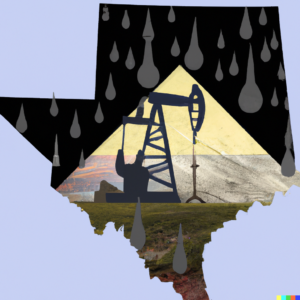
While oil and gas have been key drivers of global economic growth and development, their extraction and use can have significant environmental consequences. This has led to increased attention on the role of oil and gas in climate change and the need to transition towards cleaner, more sustainable sources of energy.
In sum, the politics of oil and gas is a complex and multifaceted topic that touches on many different aspects of global politics. Understanding the importance of oil and gas in international relations, economic development, and environmental sustainability is crucial for policymakers, businesses, and individuals alike.
Brief history of the politics of oil and gas
The politics of oil and gas have played a significant role in global affairs for over a century. Here is a brief history of the politics of oil and gas:
Early 20th century
The first significant oil discovery occurred in 1901 in Texas, USA, leading to the rise of the oil industry. During this time, major oil companies such as Standard Oil and Royal Dutch Shell began to emerge and establish themselves as major players in the global oil trade.
World War I
The strategic importance of oil was recognized during World War I, as it was used to power military vehicles and equipment. This led to increased competition for oil resources among the major powers, with many countries beginning to establish their own national oil companies.
Interwar period
The politics of oil continued to be a major factor in international relations during the interwar period. Many countries began to rely heavily on oil imports, leading to concerns about energy security and the potential for supply disruptions.
World War II
Once again, the strategic importance of oil was highlighted during World War II, with both sides attempting to control access to oil resources. This led to major conflicts in regions such as North Africa and the Middle East.
Cold War
The Cold War saw increased tensions over oil resources, as the Soviet Union and Western countries vied for control of oil-rich regions such as the Middle East. Many oil-producing countries began to assert their sovereignty over their resources, leading to the nationalization of many oil companies.
OPEC
In 1960, the Organization of the Petroleum Exporting Countries (OPEC) was formed by a group of oil-producing countries in an effort to assert greater control over the global oil market. OPEC has since become a major player in the politics of oil, influencing oil prices and production .
The politics of oil and gas have continued to evolve in recent years, with increasing attention on the environmental impact of fossil fuels and the need to transition towards cleaner, more sustainable sources of energy. The rise of unconventional oil and gas sources such as shale oil and gas has also had significant implications for the global energy.
Recent years
The players
The politics of oil and gas and the power struggles associated with these resources involve a wide range of players, including governments, state-owned oil companies, international oil and gas companies, consumers and importers of oil and gas, and various other stakeholders.
Governments play a critical role in the politics of oil and gas, as they are responsible for regulating the production and export of these resources, as well as managing their revenues. In many oil and gas producing countries, governments have a significant stake in the oil and gas industry through state-owned oil companies. These companies often have close ties to the government and can be a major source of revenue and influence. As a result, the politics of oil and gas in these countries are often closely intertwined with the politics of the ruling government.
International oil and gas companies also play a major role in the politics of oil and gas and the power struggles associated with these resources. These companies are often involved in joint ventures with state-owned oil companies and can have significant influence over the politics of the countries in which they operate. In addition, the activities of these companies can have a significant impact on the environment and local communities, leading to concerns about their impact on local politics and power struggles. As global demand for energy continues to rise, these companies are likely to remain major players in the global energy industry and in the politics of oil and gas.
Major Oil and Gas producing countries
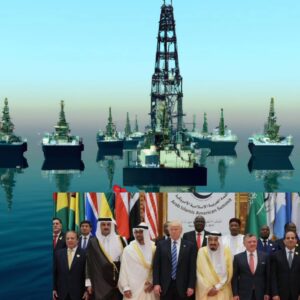
The politics of oil and gas is heavily influenced by the major oil and gas producing countries around the world. Here are some of the top oil and gas producing countries and their significance in the global energy landscape:
United States
In recent years, the United States has experienced a significant increase in oil and gas production, largely due to the shale revolution. As a result, the U.S. has become the world’s leading producer of natural gas and one of the top oil producers, playing a crucial role in the global politics of oil and gas.
At the same time, the United States is also one of the largest consumers of oil and gas globally. This dual role as a major producer and consumer of oil and gas has significant implications for the U.S. economy and foreign policy.
The rise of the U.S. as a dominant player in the oil and gas industry has challenged the traditional power dynamics of the global energy landscape, leading to a shift in the balance of power among oil-producing countries. This shift has had far-reaching geopolitical implications, as the U.S. has used its newfound energy independence as a tool to influence global politics and strengthen its position as a global superpower.
Russia
Russia is the world’s largest producer of crude oil and a major producer of natural gas. Its economy is heavily reliant on oil and gas, as these resources contribute significantly to the country’s export revenues. Due to this, Russia holds a major position in the global energy landscape and uses its oil and gas resources as a tool for diplomacy and influence in international relations.
Russia’s energy policy is largely determined by state-owned companies such as Gazprom, which controls much of the country’s gas production and exports. The Russian government has also used energy as a political lever, such as in the 2009 Russia-Ukraine gas dispute, which had a significant impact on European energy security. Additionally, Russia’s close ties to countries such as China and Iran have allowed it to expand its influence in the Middle East and Asia, both of which are key regions for energy production and consumption.
Saudi Arabia
Saudi Arabia, a key member of OPEC, is the world’s second-largest producer of crude oil. The country’s economy is highly dependent on oil, with the vast majority of its export revenues coming from this resource. As a result, the global oil market plays a critical role in shaping Saudi Arabia’s economic and political interests. The country is also a major player in global oil and gas politics, using its energy resources as a tool for geopolitical influence and diplomacy.
Iraq
In recent years, Iraq has faced significant political instability, which has had a significant impact on the country’s oil and gas production. Despite this, Iraq remains one of the world’s largest oil producers and has significant reserves of natural gas. The country’s economy is highly dependent on its oil exports, which make up the majority of its government revenues.
The politics of oil and gas in Iraq are complex, with various actors vying for control and influence over the country’s energy resources. The Iraqi government, international oil companies, and regional powers such as Iran all play significant roles in shaping the country’s energy sector. Additionally, ongoing conflicts within Iraq have further complicated the country’s energy landscape.
As Iraq looks to increase its oil and gas production and strengthen its economy, it will need to navigate these complex political dynamics and work towards a more stable and sustainable energy sector. This will require cooperation between various stakeholders and a long-term vision for Iraq’s energy future.
Iran
Iran is one of the largest oil producers in the world and has significant natural gas reserves. However, the country has faced major political and economic challenges due to international sanctions on its oil and gas industry. These sanctions were imposed by the United States and other countries in response to Iran’s nuclear program, which has been a source of international concern. As a result, Iran’s oil and gas production has been significantly impacted, leading to economic hardships for the country. The lifting of these sanctions in recent years has led to increased production, but ongoing political tensions with the US and other countries continue to impact Iran’s oil and gas industry.
Canada
Canada is a prominent producer of oil and natural gas, with extensive reserves of oil sands and shale gas. The country is also a significant supplier of oil and gas to the United States. The oil sands are a significant source of crude oil, but their extraction and production process can be environmentally damaging, making them a controversial topic. The Canadian government is also committed to reducing greenhouse gas emissions and promoting renewable energy, which could impact the country’s energy industry in the future.
Nigeria
Nigeria is one of the major oil-producing countries in the world. In fact, it is the largest oil producer in Africa and one of the top oil exporters in the world. Oil accounts for over 90% of Nigeria’s total export revenues, making it a critical part of the country’s economy.
Nigeria’s oil industry began in the 1950s, with the discovery of oil in the Niger Delta region. Since then, the country has developed into a major player in the global oil market, with significant reserves of both crude oil and natural gas. Nigeria is also a member of OPEC, which gives it some influence over the global oil market.
However, the politics of oil in Nigeria are complex, and the industry has been marked by controversy and conflict. The environmental impact of oil production in the Niger Delta has been a major concern, with oil spills and pollution causing significant harm to local communities and ecosystems. The industry has also been plagued by corruption and mismanagement, leading to tensions between the government, oil companies, and local communities.
Overall, Nigeria’s oil industry is a major part of the country’s economy and a significant player in the global oil market. However, the challenges and controversies surrounding the industry highlight the complex politics of oil and the need for responsible and sustainable management of this critical resource.
Libya
LIbya has significant reserves of both crude oil and natural gas, and the oil industry accounts for the vast majority of the country’s export revenues.
Before the Libyan civil war in 2011, the country was one of the top oil producers in Africa and a significant player in the global oil market. The country’s oil industry is largely run by the state-owned National Oil Corporation (NOC), which has a strong relationship with international oil companies.
However, the Libyan civil war and subsequent political instability have had a significant impact on the country’s oil industry. Oil production has fluctuated greatly in recent years, with production levels dropping to as low as 200,000 barrels per day in 2020 due to the conflict and the Covid-19 pandemic.
International Oil and Gas Companies
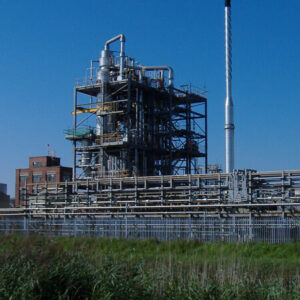
International oil and gas companies play a critical role in the politics of oil and gas and are major players in the global energy industry. These companies are often involved in the exploration, production, and transportation of oil and gas, and their activities can have a significant impact on the local and global economy, environment, and politics.
Some of the largest international oil and gas companies include ExxonMobil, Royal Dutch Shell, BP, Chevron, Total, and Gazprom. These companies operate in countries around the world, including major oil and gas producing countries such as Nigeria, Saudi Arabia, Russia, the United States, and Canada.
International oil and gas companies often engage in joint ventures with state-owned oil companies, which can give them significant influence over the politics of the countries in which they operate. In some cases, the relationship between these companies and the governments of the countries in which they operate can be opaque, leading to concerns about corruption and the impact of these companies on local politics and power struggles.
In addition to their economic and political influence, international oil and gas companies also have a significant impact on the environment. The production and use of oil and gas is a major contributor to greenhouse gas emissions, which are a leading cause of climate change. Many international oil and gas companies have been criticized for their role in contributing to climate change and for not doing enough to transition to more sustainable energy sources.
The politics of oil and gas and the power struggles associated with these resources are complex and can be influenced by a wide range of factors, including the interests of international oil and gas companies. As global demand for energy continues to rise, it is important that these companies operate responsibly and transparently, taking into account the interests of local communities, governments, and the environment. This will be critical to ensuring a sustainable and stable energy future.
Consumers and importers of Oil and Gas
The politics of oil and gas and the power struggle associated with these resources are not limited to the countries that produce them. The consumers and importers of oil and gas are also major players in the global energy industry and have significant influence over the politics and power struggles associated with these resources.
The world’s largest consumers of oil and gas are the United States, China, and India. These countries have large and growing economies that are heavily reliant on oil and gas for energy and transportation. As a result, they are major importers of oil and gas and have significant influence over global energy markets.
The politics of oil and gas and the power struggles associated with these resources can have a significant impact on these countries’ energy security and economic stability. For example, disruptions in the supply of oil and gas can lead to price spikes and economic instability, while conflicts over oil and gas resources can lead to geopolitical tensions and even military conflict.
In addition, the politics of oil and gas can also be influenced by the interests of energy companies and other stakeholders in consumer countries. For example, the United States and other major oil and gas importers have long been involved in the politics of the Middle East, where many of the world’s largest oil reserves are located.
As global demand for energy continues to rise, the politics of oil and gas and the power struggles associated with these resources are likely to remain a critical issue for both producers and consumers. It is important that all stakeholders work together to ensure a stable and sustainable energy future, one that balances the interests of producers, consumers, and the environment.
Geopolitics of Oil and Gas
The geopolitics of oil and gas refers to the relationships between countries that produce and consume these resources, as well as the power struggles and tensions that arise from their production and distribution. The politics of oil and gas is heavily influenced by geography, as the location of oil and gas reserves can have a significant impact on global energy markets and politics.
One of the key geopolitical issues related to oil and gas is the concentration of reserves in a small number of countries, particularly in the Middle East. This has led to a significant power imbalance between oil-producing and oil-consuming countries, with oil producers having significant influence over global energy markets and oil consumers often being forced to rely on these producers for their energy needs. As a result, the politics of oil and gas is often characterized by tensions and power struggles between oil-producing and oil-consuming countries.
Another important geopolitical issue related to oil and gas is the role of international organizations, such as OPEC (Organization of the Petroleum Exporting Countries). OPEC is a cartel of oil-producing countries that seeks to regulate the supply and price of oil on the global market. This organization has significant influence over global energy markets and has been the subject of much controversy over the years, with some arguing that it acts against the interests of oil consumers.
Finally, the geopolitics of oil and gas is closely tied to issues of national security and military conflict. Disruptions in the supply of oil and gas can have significant economic and political consequences, and countries have often resorted to military force to protect their access to these resources. The politics of oil and gas is therefore closely intertwined with issues of international security and has been a major driver of conflict and tension in the world.
The role of oil and gas in international relations
The role of oil and gas in international relations is a major factor in shaping global politics and power dynamics. The politics of oil and gas is influenced by a wide range of factors, including access to resources, the interests of major players in the energy industry, and the potential for environmental and economic impacts associated with their extraction and use.
Oil and gas are critical resources that are necessary to fuel the global economy, and countries that have access to significant reserves of these resources have significant influence in the international community. This has led to a number of political and economic power struggles, particularly in the Middle East, where many of the world’s largest oil reserves are located.
In addition, the production and consumption of oil and gas have significant impacts on the environment, which can have far-reaching consequences for international relations. Climate change and other environmental concerns have become increasingly important factors in the politics of oil and gas, with many countries seeking to reduce their dependence on fossil fuels and shift towards renewable energy sources.
The role of oil and gas in international relations is further complicated by the fact that many of the largest producers and consumers of these resources are also major players in the global political arena. This has led to a number of political and economic power struggles, with countries seeking to use their energy resources to advance their strategic interests and to influence the global balance of power. As a result, the politics of oil and gas is likely to remain a major factor in international relations for the foreseeable future.
Oil and gas as a source of geopolitical power
Oil and gas are often seen as sources of geopolitical power due to their strategic importance in the global economy. Countries with significant reserves of these resources can exert significant influence over global energy markets, which in turn can affect political and economic power dynamics.
One way that countries can use their oil and gas reserves as a source of geopolitical power is by controlling the supply of these resources to other countries. For example, countries with significant oil reserves can limit production or impose embargoes to drive up prices and exert influence over other countries that are dependent on oil imports.
Oil and gas can also be used as a bargaining tool in international relations. Countries with significant reserves of these resources can use them to secure favorable trade deals, forge strategic alliances, or to pressure other countries to comply with their political or economic interests.
In addition, countries that are major producers of oil and gas often have significant geopolitical influence over other countries that are heavily dependent on these resources. For example, countries in the Middle East with significant oil reserves have often played a major role in shaping regional politics and global economic relations.
The impact of oil and gas on global economy and trade
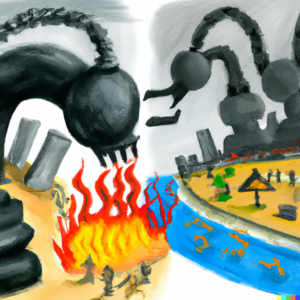
Oil and gas are crucial components of the global economy, and as such, have a significant impact on global trade. The extraction, production, and sale of oil and gas have created a complex network of global economic relations, with many countries heavily dependent on these resources for their economic well-being.
One of the key impacts of oil and gas on the global economy is their role in shaping trade relations between countries. Countries that are major producers of oil and gas often use these resources as a bargaining tool in trade negotiations, offering preferential access to these resources in exchange for favorable trade agreements.
In addition, the price of oil and gas has a significant impact on global economic growth, with fluctuations in prices often having far-reaching consequences for international trade and investment. High oil prices can lead to inflation and reduced economic growth, while low prices can lead to deflation and increased economic activity.
Moreover, the oil and gas industry is one of the largest employers in the global economy, with millions of jobs created throughout the supply chain, from exploration and production to refining and transportation. The industry also plays a critical role in supporting other industries, such as manufacturing and transportation, which are heavily dependent on oil and gas to fuel their operations.
However, the extraction and use of oil and gas can also have negative environmental and economic impacts, including pollution, resource depletion, and the risks associated with climate change. As such, there is an ongoing debate about the role of oil and gas in the global economy, and the need to transition towards cleaner, more sustainable energy sources in the future.
In summary, the impact of oil and gas on the global economy and trade is significant, with these resources shaping trade relations, economic growth, and employment around the world. However, the environmental and economic costs associated with their extraction and use highlight the need to transition towards cleaner, more sustainable energy sources in the future.
The Politics of Oil and Gas in the 21st Century
The politics of oil and gas in the 21st century have been characterized by a complex web of power struggles, competition for resources, and efforts to address the environmental and social impacts of these industries. As the world becomes more interconnected and energy demands continue to rise, the politics of oil and gas are likely to play an increasingly significant role in shaping global power dynamics and economic relations.
One of the major trends in the politics of oil and gas in the 21st century has been the rise of new players in the global energy landscape. Countries such as China and India, with their rapidly growing economies and expanding energy demands, have become major players in the global oil and gas market, challenging the dominance of traditional producers in the Middle East and other regions.
At the same time, efforts to address the environmental impacts of oil and gas production have also emerged as a key trend in the politics of these industries. The global shift towards renewable energy sources, and the growing recognition of the need to reduce carbon emissions, has led many countries to reevaluate their dependence on oil and gas, and to invest in new technologies to reduce their environmental footprint. This shift is likely to have far-reaching implications for the global energy landscape and the politics of these industries in the years to come.
Overall, the politics of oil and gas in the 21st century are shaped by a complex interplay of economic, political, and environmental factors, with powerful players and stakeholders vying for control over critical resources, shaping global power dynamics and economic relations, and struggling to address the environmental and social impacts of these industries. The future of the global energy landscape is likely to be shaped by ongoing efforts to transition towards cleaner, more sustainable energy sources, and the continued competition for resources and power in the global politics of oil and gas.
The shift towards renewable energy

The shift towards renewable energy sources has emerged as a key trend in the politics of oil and gas in recent years, as countries around the world seek to reduce their dependence on fossil fuels and address the environmental and social impacts of these industries. The development of new technologies and policies aimed at promoting renewable energy sources, such as solar, wind, and hydropower, has opened up new opportunities for investment and innovation in the energy sector.
At the same time, the shift towards renewable energy sources is also reshaping global power dynamics and economic relations, as countries with abundant renewable resources, such as wind and solar power, emerge as new players in the global energy market. This has created both opportunities and challenges for traditional oil and gas producers, who must navigate a rapidly changing landscape and adapt to new technologies and business models.
Despite the growing momentum towards renewable energy, however, the transition away from fossil fuels is likely to be a slow and complex process, shaped by a range of economic, political, and environmental factors. Oil and gas will likely remain significant sources of energy for the foreseeable future, particularly in developing countries with growing energy demands. As such, the politics of oil and gas and the shift towards renewable energy sources will continue to shape global power dynamics and economic relations in the years to come.
The rise of unconventional oil and gas sources
The rise of unconventional oil and gas sources has been a major development in the politics of oil and gas in recent years. Unconventional sources, such as shale gas and tight oil, have opened up new opportunities for energy production, particularly in the United States, which has emerged as a major producer of unconventional oil and gas. This has had significant impacts on global power dynamics and economic relations, as the United States has reduced its dependence on foreign oil and gas imports, and other countries have sought to emulate its success in developing unconventional energy sources.
However, the development of unconventional oil and gas sources has also raised a range of environmental and social concerns, particularly around issues such as water usage and pollution, as well as the impacts of hydraulic fracturing or “fracking” on local communities and ecosystems. These concerns have led to increasing regulatory scrutiny and public opposition to unconventional oil and gas development in some countries, such as France and Germany.
Despite these challenges, the rise of unconventional oil and gas sources is likely to continue to shape the politics of oil and gas in the years to come. As technologies for unconventional energy production continue to improve and costs decrease, these sources are likely to become increasingly important in meeting global energy demands, particularly in developing countries. However, the environmental and social impacts of these industries will also continue to be an important factor in the politics of oil and gas, shaping debates over energy policy and regulation both domestically and internationally.
The increasing influence of environmental concerns on oil and gas politics

Environmental concerns have increasingly become a major factor in the politics of oil and gas, as public awareness of climate change and other environmental issues has grown in recent years. This has led to a shift in the political and economic landscape of the oil and gas industry, as governments, investors, and companies have come under increasing pressure to address environmental concerns and reduce their carbon footprints.
In response to these pressures, many countries have adopted policies and regulations aimed at reducing their dependence on fossil fuels and promoting the development of renewable energy sources. For example, the European Union has set targets to reduce its greenhouse gas emissions by 55% by 2030, and to achieve net-zero emissions by 2050. Many countries have also introduced carbon pricing mechanisms, such as carbon taxes or emissions trading schemes, to incentivize the reduction of carbon emissions.
At the same time, many oil and gas companies have started to shift their focus towards cleaner and more sustainable energy sources. Some companies have invested in renewable energy projects, such as wind and solar power, while others have developed new technologies to reduce the carbon intensity of their oil and gas operations. However, there is still a long way to go in terms of addressing the environmental impacts of the oil and gas industry, and the transition towards a more sustainable energy system is likely to be a complex and contested process.
Overall, the increasing influence of environmental concerns on oil and gas politics reflects a broader shift in global attitudes towards energy and the environment. As the world continues to grapple with the challenges of climate change and other environmental issues, it is likely that the politics of oil and gas will continue to evolve in response to these challenges, with significant implications for global power dynamics and economic relations.
Case studies
Russia-Ukraine gas dispute: In 2006 and 2009, Russia and Ukraine had a major gas dispute that resulted in supply disruptions to Europe, which relies heavily on Russian gas. The dispute centered around pricing and debt issues, but also had political overtones, as Russia used its control over gas supplies to exert pressure on Ukraine and its Western allies. The dispute highlighted the vulnerability of Europe’s energy security and the geopolitical implications of its dependence on Russian gas.
Arctic oil exploration: The Arctic region is estimated to have significant oil and gas reserves, and several countries, including Russia, the United States, Canada, and Norway, have been vying for control over the region’s resources. The exploration and exploitation of Arctic oil and gas have significant environmental and geopolitical implications, as it involves some of the most pristine and fragile ecosystems on the planet, as well as potential conflicts over territorial claims and access to resources. The politics of Arctic oil and gas are likely to continue to be a major source of tension and competition among the countries that border the region.
OPEC and the shale revolution: The shale revolution, which has seen the United States become one of the largest oil and gas producers in the world, has disrupted the global oil market and challenged the power dynamics of the Organization of the Petroleum Exporting Countries (OPEC), which had previously controlled a significant portion of the world’s oil supplies. The rise of shale oil and gas has led to a shift in the balance of power in the oil industry, with the United States emerging as a major player and reducing its dependence on imports. This has had major geopolitical implications, as countries that rely heavily on oil exports for revenue have been forced to adapt to a changing market and re-evaluate their strategic positions.
The US Shale Revolution and its impact on global Oil and Gas Politics

The US shale revolution, which began in the early 2000s and accelerated in the 2010s, has had a significant impact on global oil and gas politics. The technology of hydraulic fracturing, or “fracking,” has allowed the US to extract oil and gas from previously inaccessible shale rock formations, resulting in a surge in domestic production. This has reduced the country’s dependence on oil imports and shifted the global balance of power in the oil industry.
The rise of US shale oil and gas has also challenged the traditional power dynamics of the Organization of the Petroleum Exporting Countries (OPEC), which has historically controlled a significant portion of the world’s oil supplies. The increased supply of oil from the US has put downward pressure on prices, resulting in a drop in revenue for OPEC member countries. This has led to tensions within the organization, with some members, such as Saudi Arabia, pushing for production cuts to boost prices, while others, such as Iran, have resisted these efforts.
The impact of the US shale revolution has not been limited to OPEC. It has also had major geopolitical implications for other countries that rely heavily on oil exports for revenue, such as Russia and Venezuela. The decline in oil prices resulting from increased US supply has hurt their economies and weakened their political positions on the global stage. The US shale revolution has also increased the country’s strategic importance in the Middle East, as it has reduced the need for US military intervention in the region to protect oil supplies. Overall, the rise of US shale oil and gas has fundamentally changed the global oil and gas politics, with major implications for the power struggles and geopolitical dynamics of the 21st century.
The OPEC oil embargo of the 1970s and its lasting impact
The OPEC oil embargo of the 1970s was a pivotal moment in the politics of oil and gas, and had a lasting impact on the global energy landscape. The embargo was a response to the support of the United States for Israel in the Yom Kippur War, and it aimed to punish Western countries by reducing their access to oil from OPEC member countries. The embargo led to a significant increase in oil prices and caused economic disruption around the world, particularly in the US and Europe.
The oil embargo had lasting effects on energy policy in the US, which at the time was heavily reliant on foreign oil imports. It spurred the country to begin exploring domestic sources of oil and gas, leading to the development of new technologies and increased investment in domestic production. It also led to the creation of the Strategic Petroleum Reserve, a stockpile of emergency crude oil that could be used in the event of another supply disruption.
The OPEC oil embargo also shifted the global balance of power in the oil industry, with OPEC member countries gaining greater control over the price and supply of oil. It led to a greater focus on energy security and energy independence in Western countries, as well as increased investment in renewable energy and alternative fuel sources. It also set the stage for future oil price shocks, such as the oil price spikes of the 1970s and the 2000s.
In conclusion, the OPEC oil embargo of the 1970s was a defining moment in the politics of oil and gas, with long-lasting implications for energy policy, the global energy landscape, and the power dynamics of the industry. It highlighted the vulnerabilities of countries that are heavily reliant on foreign oil imports and led to a renewed focus on energy security and alternative fuel sources. The embargo also underscored the geopolitical importance of oil and gas and the complex power struggles that surround these resources.
The Russia-Ukraine gas dispute and its impact on European energy security
The Russia-Ukraine gas dispute of 2006 and 2009 highlighted the importance of energy security and the use of natural gas as a political tool. The dispute began when Ukraine refused to pay a higher price for natural gas imported from Russia. In response, Russia cut off gas supplies to Ukraine, which resulted in a reduction of gas supplies to other European countries that depend on Russian gas transit through Ukraine. The dispute demonstrated Russia’s ability to use its control over gas supplies as a political tool to exert influence over its neighbors and to gain leverage in international negotiations.
In response to the gas dispute, the European Union (EU) developed a strategy to improve its energy security and reduce its dependence on Russian gas. The EU’s efforts include diversifying its energy sources, increasing domestic production, building new infrastructure, and promoting energy efficiency and renewable energy. The dispute also led to the creation of the Energy Community, an international organization that aims to promote energy security, market integration, and sustainable development in Europe and its neighboring countries.
The gas dispute had a lasting impact on European energy security and highlighted the need for more sustainable and diversified energy systems. It also increased tensions between Russia and Ukraine and underscored the complex geopolitical relationships between energy producers, transit countries, and consumers. The dispute served as a wake-up call for policymakers to address the potential risks of energy dependence and to develop a more strategic and comprehensive approach to energy security.
Conclusion
The ongoing importance of oil and gas in global politics
Despite the growing shift towards renewable energy and the development of alternative energy sources, oil and gas remain essential commodities in the 21st century. The geopolitical significance of these resources is still considerable, with many countries around the world depending on them for economic growth and political stability. As a result, the politics of oil and gas continue to be a significant factor in international relations.
Oil and gas continue to be central to the economies of many countries, particularly in the Middle East and Africa, where they are major sources of government revenue. Countries that are rich in oil and gas reserves, such as Saudi Arabia, Russia, and Venezuela, are able to exert significant influence on the global economy through their control of these resources. The major oil and gas producing countries have formed organizations such as OPEC to coordinate their production and pricing policies, which further enhances their influence.
Oil and gas also play a critical role in global energy security, with many countries relying on imports to meet their energy needs. This dependence on foreign oil and gas can create vulnerabilities in the supply chain, as demonstrated by the 1970s oil embargo and the Russia-Ukraine gas dispute. In response, many countries have sought to diversify their sources of energy and reduce their reliance on oil and gas from specific regions, but the transition to alternative energy sources is still in progress.
In conclusion, the politics of oil and gas continue to be a crucial factor in international relations. The geopolitical power that comes with controlling these resources, the impact on the global economy and trade, and the concerns over energy security all ensure that oil and gas will remain central to global politics for the foreseeable future. However, as the world seeks to address climate change and transition to renewable energy, it remains to be seen how the role of oil and gas will evolve in the coming decades.
The need for a balanced and sustainable approach to energy policy
The politics of oil and gas have long been characterized by a power struggle among nations, corporations, and interest groups. However, as the world becomes increasingly aware of the impact of fossil fuels on the environment and climate change, there is a growing need for a more balanced and sustainable approach to energy policy. This means shifting away from a dependence on oil and gas, and investing in renewable energy sources such as wind, solar, and hydropower.
While the transition to renewable energy will not happen overnight, it is essential that governments and energy companies begin to work towards a sustainable future. This means embracing new technologies, improving energy efficiency, and implementing policies that support the development of renewable energy sources. It also means reducing the political and economic power that fossil fuel companies hold, and recognizing the importance of environmental protection and sustainability.
A balanced and sustainable approach to energy policy is not only necessary for the health of our planet, but it can also lead to economic benefits and greater energy security. Renewable energy sources can provide a stable and secure source of energy, reduce dependence on foreign oil, and create new jobs and industries. Furthermore, investing in renewable energy can improve energy access in developing countries and help to reduce poverty and inequality.
In conclusion, the politics of oil and gas have had a profound impact on global politics and continue to be a major source of power and influence. However, the shift towards a more balanced and sustainable approach to energy policy is crucial for the long-term health of our planet and the well-being of all its inhabitants. This requires a concerted effort by governments, energy companies, and individuals to embrace new technologies, improve energy efficiency, and invest in renewable energy sources. By doing so, we can create a brighter and more sustainable future for all.
The potential for future shifts in the politics of oil and gas
The politics of oil and gas are constantly evolving, and it is likely that we will see further shifts in the years and decades to come. One potential shift is a continued move towards renewable energy sources as countries seek to reduce their reliance on fossil fuels and address climate change concerns. This could lead to a decrease in the geopolitical power of oil and gas producing nations, as well as a shift in the balance of power towards countries with a comparative advantage in renewable energy production.
Another potential shift is the continued rise of unconventional oil and gas sources, such as shale oil and gas, tar sands, and deepwater drilling. These sources can be more difficult and expensive to extract than traditional sources, but technological advances have made them increasingly economically viable. This could lead to changes in the global distribution of oil and gas reserves and production, and could also have environmental and social impacts that will need to be carefully managed.
Overall, the future of the politics of oil and gas is likely to be shaped by a complex web of geopolitical, economic, environmental, and technological factors. It will be important for policymakers to take a balanced and sustainable approach to energy policy that takes into account not only short-term economic and geopolitical interests, but also the long-term sustainability of energy production and use. Only by doing so can we ensure that we are able to meet the energy needs of a growing global population while also safeguarding the health of our planet and the well-being of future generations.

